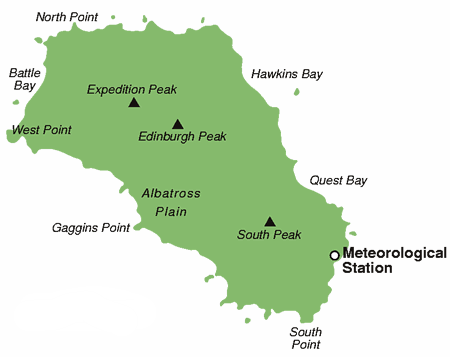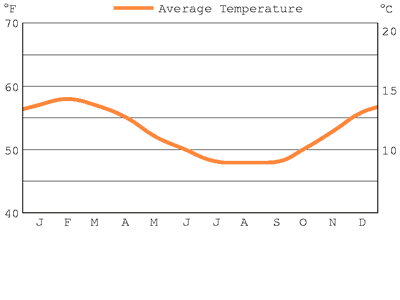Gough Island (United Kingdom)
“Tristan albatrosses soar for weeks, muscles locked in place on 12-foot (3.9 m) wingspans, before coming down to nest on this tiny island speck halfway between South America and Africa—their only home—along with nine million shearwaters, 300,000 rockhopper penguins, wandering, sooty, and yellow-nosed albatrosses, and others.”
Gough Island is one of the most important seabird nesting colonies in the world. Up to six million wave-skimming greater shearwaters return yearly from a storm-tossed life to raise noisy young in burrows among coastal tussocks on this lush, green, U.N. World Heritage Site. It is one of the most remote islands in the world—a 25-square-mile (65-km2) speck in the South Atlantic Ocean roughly halfway between South America and Africa.
More than 300,000 jaunty little northern rockhopper penguins—almost half the world population— with bushy yellow eyebrows, red eyes, and bright pink feet make stony nests on beaches and cliffsides above spectacular cataracts that plunge 1,500 feet (450 m) to the sea.
Tristan albatrosses that can soar for weeks with muscles locked in place on 12-foot (3.9-m) wingspans—one of the longest of any seabird—come down to nest nowhere else but here, up to 2,000 pairs of them. So do almost all the world’s surviving Atlantic petrels. Gough, with its surrounding islets, sea stacks, and rocks, is an essential breeding site as well for little shearwaters, several million pairs on the two islands. With them are the largest nesting population of sooty albatross and large numbers of Atlantic yellow-nosed albatross.
Some 6,000 endemic Gough moorhens (aka flightless rails) forage in thick fern and heath vegetation edging moist peat bogs. Up to 4,000 Gough Island buntings feed in seed-bearing tussock grasslands.
Subantarctic fur seals—at recent count 350,000 and increasing—breed on rocky beaches all around the island. About 100 southern elephant seals mate and breed on the sheltered east coast. Swimming offshore are southern right and Shepherd’s beaked whales and dusky dolphins.
Gough Island has been largely unpopulated throughout its history. Two centuries ago sealers stopped here, periodically living off birds, fish, eggs, wild plants, and cultivated potatoes, but nothing remains of their presence, other than a few weedy potatoes and a thriving population of introduced house mice. These have evolved to large size and may offer a threat to the island’s seabirds. Only structures now are a meteorological station and helicopter landing site, with no visitor facilities. Access is prohibited except with prior written permit from the Administrator, the Residency, Tristan da Cunha, South Atlantic.
Gough Island (United Kingdom)
More about the Reserves in gough island (United Kingdom)
Each button selection will take you to a site outside the Nature's Strongholds site, in a separate window so that you may easily return to the reserve page.
Advertisement




